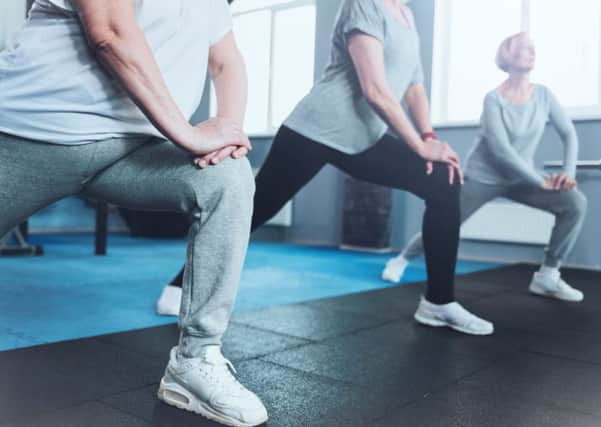Exercise is not just for the obsese - Sir Harry Burns


Exercise is not just for the obese. We all need it. I’m not one for spending holidays sunbathing beside a swimming pool. Summer usually sees me packing my bicycle into a box, loading it onto an aeroplane and spending a couple of weeks cycling Mallorca’s mountains and country roads. This year, a day spent cycling 120 kilometres and climbing 1500 meters in a temperature of 41 degrees, left me needing a day or two of recovery beside the swimming pool.
This year, a day spent cycling 120 kilometres and climbing 1500 meters in a temperature of 41 degrees left me needing a day or two of recovery beside the swimming pool.
Advertisement
Hide AdAdvertisement
Hide AdThe usual variety of body shapes were on display. Obesity is obvious and common. Such is the adverse publicity about obesity that we tend to think of it as the major problem of the modern physique.
I was, however, struck by the number older people who were very skinny with spindly legs and arms. This is a condition known as sarcopenia and is due to progressive muscle loss from middle age onwards. It is estimated that around 10 per cent of those over 50 are affected. Those who take little exercise or eat a diet low in protein, can lose around two per cent of their muscles each year. This leads to problems such as increased risk of falls and frailty in old age.
However, recent research from America has found that the more press-ups men can do in a single exercise session, the less likely they are to experience a heart attack in subsequent years. In fact, the men who could complete 40 or more press-ups had a 96 per cent reduction in risk of heart problems in the next 10 years than those who could only do 10 or less. The results suggest that press-ups might be a simple method of testing how healthy your heart is.
While the study showed an association between ability to do press-ups and risk of heart problems, it was not able to prove that strengthening your arms reduced your risk. Also, it could not rule out that the muscle loss and risk of heart disease might both be linked to other conditions. Respiratory disease, for example, might cause muscle weakness and loss as well as increasing heart risk. A more worrying physique is the combination of muscle loss with a fatty abdomen. Muscle burns sugar for energy. If we eat a high carbohydrate diet, it increases blood sugar. If we are not active and have little muscle to burn the sugar, diabetes can result. However, it seems prudent to build and maintain muscle mass and strength as we enter middle age.
I once met a man who claimed to be in his eighties. We chatted and, on discovering I was a surgeon, he asked me how long it might take for a minor operation to heal. It turned out that he was worried about the impact of an operation on his money earning sideline. He would go into a pub and engage younger men in a discussion about fitness. He would claim to be fitter than them. Usually this challenge from an old bloke was laughed at. This dismissal led him to bet that he could do more press-ups than the young guys. He told me he rarely lost a bet. Most younger men would quit before 40 press-ups. He would keep going until he had done 100. For some of us, working the muscles can, it seems, preserve them into old age.
Most advice tends to focus on the importance of aerobic exercise. Walking, running, cycling are important and everyone needs to move more. However, resistance training with weights or exercise bands is important to slow muscle loss and keep us mobile as we age. It might also earn you some money!
Professor Sir Harry Burns is director of global public health at Strathclyde University
